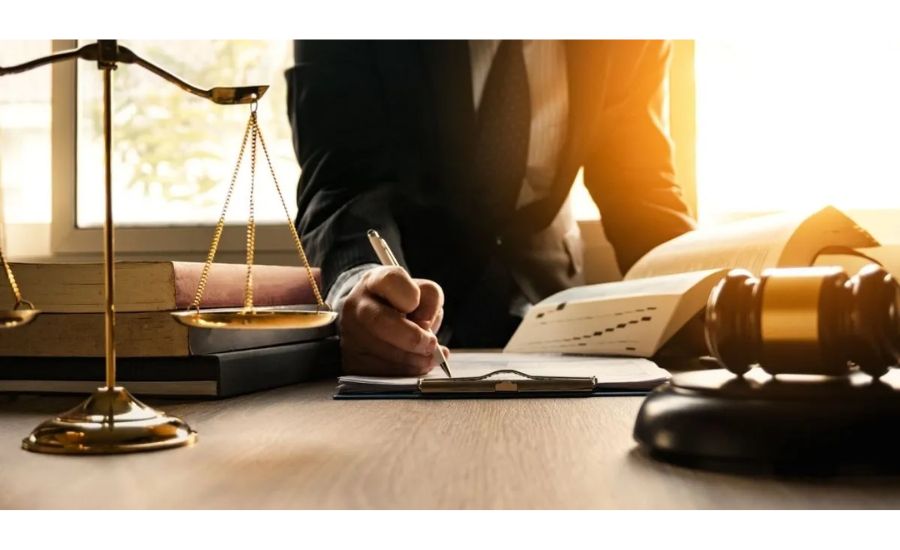Beyond Bytes and Bits: Law Craft In the Information Age, Computerized, Lawful & More
Introduction to Beyond Bytes and Bits: Law Craft In the Information Age
Law is changing at a never-before-seen pace in the fast-paced computerized world of nowadays, where information is continually streaming and innovation influences nearly each portion of our lives. This alter is reflected in the express “Beyond Bytes and Bits: Law Create in the Data Age,” which emphasizes how customary lawful forms are altering to the openings and issues brought almost by innovation advancements.
Knowing how law and innovation associated is more pivotal than ever as computerized innovation penetrates all perspectives of our lives, whether it be exploring day by day life, conducting commerce, or interfacing with others. Finding strategies to translate and actualize current rules to a continually advancing computerized environment is presently the duty of legitimate experts.
The complexity of advanced contracts and exchanges, cybersecurity concerns, and the developing security concerns are a few of the primary causes of this alter in the legitimate industry. There are crevices in direction and requirement since conventional legitimate systems regularly discover it troublesome to keep up with the fast speed of innovation innovation.
For occasion, in our advanced age, concerns like information protection are at the cutting edge. There is an pressing require for enactment that equalizations the preferences of information utilization with the security of person protection, given the expansion of stages and frameworks that handle individual data. Legitimate specialists require to be arranged to bargain with the complexities of innovation as well as the ethical and societal consequences of its application.
The Computerized Change of Law

Remember when lawful investigate implied investing hours in a library? Those days are gone. Today’s lawful experts are utilizing AI-powered instruments to analyze thousands of cases in minutes. This isn’t fair making things speedier – it’s totally changing how legitimate work gets done.
Law firms are presently contributing intensely in legitimate tech, with numerous receiving devices that can foresee case results and distinguish designs in lawful records. For case, major firms like DLA Flute player and Pastry specialist McKenzie are utilizing machine learning to survey contracts 60% speedier than human legal counselors, whereas keeping up precision rates over 90%.
The Computerized Insurgency and Its Lawful Challenges
The advanced transformation has brought approximately exceptional get to to data, changing businesses and social orders around the world. Be that as it may, with these progressions come critical legitimate challenges that request unused approaches to lawmaking, requirement, and debate determination. In the past, laws were essentially concerned with unmistakable objects, physical contracts, and neighborhood locales. Nowadays, legitimate professionals must explore an progressively complex scene where information rises above borders, protection concerns are vital, and modern innovations such as counterfeit insights and blockchain are disturbing conventional lawful systems. To create laws that address these rising issues, legitimate experts must grasp a attitude that goes past bytes and bits, coordination mechanical understanding into their practice.
Understanding the Data Age’s Affect on Lawful Systems
The data age has in a general sense modified the way social orders work, and the legitimate framework is no special case. One of the most significant impacts is the move in how law is practiced and upheld. The multiplication of advanced stages, online exchanges, and virtual communities has made it challenging for conventional legitimate structures to keep up. Legitimate systems that were outlined in an period ruled by paper reports, face-to-face intuitive, and nearby boundaries are progressively deficiently to address the complexities of the advanced world. The rise of cybercrime, mental property burglary, and online criticism has made a require for laws that are not as it were adaptable but too energetic sufficient to react to quickly advancing innovative changes.
Crafting Laws for the Advanced World
In the computerized period, making successful laws requires a profound understanding of innovation as well as the capacity to foresee how it will advance. Lawmakers must collaborate with innovation specialists to make lawful systems that are versatile to future developments. This is no little errand, as innovation progresses at a pace that distant exceeds the administrative handle. Laws must be made with premonition, taking into account the potential results of rising advances such as fake insights, machine learning, and independent frameworks. Besides, legitimate experts must expect the worldwide nature of advanced stages, as exercises that happen in one locale frequently have far-reaching suggestions in another. Creating laws in such an environment requires a adjust between adaptability and specificity, guaranteeing that the law can adjust to modern challenges without getting to be obsolete as well quickly.
Privacy in the Data Age: A Lawful Tightrope
Privacy has ended up one of the most noteworthy legitimate challenges in the data age. With the endless sum of individual information collected by companies and governments, concerns almost how this data is put away, shared, and utilized are at the cutting edge of lawful talks. Lawful systems such as the European Union’s Common Information Assurance Direction (GDPR) have risen to address these concerns, but security law remains a quickly advancing field. Legitimate experts must hook with issues of assent, information proprietorship, and the duties of organizations that collect and handle individual information. At the same time, they must consider the adjust between person security rights and the require for security in an progressively associated world. Making laws that ensure protection without smothering development is a fragile adjusting act that requires cautious thought and legitimate expertise.
Cybersecurity and the Law: A Developing Concern
As cyberattacks ended up more advanced and unavoidable, the require for vigorous cybersecurity laws has never been more prominent. Organizations over businesses are confronting increased dangers of information breaches, hacking, and other shapes of cybercrime. Legitimate experts are entrusted with creating systems that not as it were address these dangers but moreover set up clear obligations for organizations in terms of cybersecurity hones. From information breach notice necessities to rules on encryption and security conventions, the law plays a basic part in ensuring touchy data. Moreover, laws must advance to address modern challenges such as the developing utilize of manufactured insights in cybersecurity, which raises questions approximately responsibility, obligation, and straightforwardness. Cybersecurity law must be dexterous, proactive, and forward-thinking to remain ahead of rising dangers in this high-stakes arena.
Intellectual Property in the Data Age: Modern Challenges and Opportunities

Intellectual property (IP) law is another region where innovation is reshaping conventional legitimate standards. The rise of advanced media, online substance, and computer program improvement has made unused challenges in ensuring mental property rights. In the past, IP law essentially centered on physical resources such as licenses, trademarks, and copyrights. Nowadays, advanced advancements such as program code, advanced craftsmanship, and virtual products require lawful assurances that are regularly not well characterized in existing systems. The coming of blockchain innovation, for case, has presented modern openings for securing computerized resources through decentralized systems. In any case, the decentralized nature of blockchain raises questions approximately purview, proprietorship, and authorization that conventional IP law may not completely address. Legitimate experts in the data age must be arranged to explore these unused challenges and create laws that secure advanced manifestations in a way that is reliable with cutting edge innovative realities.
Artificial Insights and the Lawful Profession
Artificial insights (AI) is changing each industry, and the legitimate calling is no special case. From contract survey and lawful investigate to prescient analytics and report robotization, AI is making a difference lawful experts work more proficiently and precisely. Be that as it may, the rise of AI too presents critical lawful challenges. Questions almost the risk of AI frameworks, the moral suggestions of algorithmic decision-making, and the potential for predisposition in AI-driven forms are central to continuous lawful talks about. As AI proceeds to advance, legitimate specialists must make laws that administer its utilize in ways that secure person rights, guarantee straightforwardness, and cultivate advancement. In numerous ways, AI is challenging the exceptionally establishments of law, requiring lawful experts to reexamine concepts such as organization, duty, and equity in the computerized age.
Blockchain and the Future of Lawful Transactions
Blockchain innovation, which supports cryptocurrencies like Bitcoin, is one of the most troublesome developments in later a long time. By giving a secure, straightforward, and permanent record of exchanges, blockchain can streamline forms such as contract execution, property exchanges, and character confirmation. Be that as it may, the far reaching appropriation of blockchain raises complex lawful questions with respect to contract law, debate determination, and locale. Legitimate experts must hook with the suggestions of decentralized advances and how they fit inside conventional legitimate systems. As blockchain innovation proceeds to advance, its affect on the lawful calling will as it were develop, advertising both unused openings and unused challenges for lawyers.
The Part of Information in Legitimate Decision-Making
Data is progressively central to legitimate decision-making, whether in case, contract arrangements, or arrangement advancement. The capacity to analyze huge volumes of information can give profitable experiences into lawful patterns, points of reference, and potential results. Be that as it may, the utilize of information in the lawful field too raises moral and protection concerns. In addition, the developing dependence on data-driven decision-making in the lawful calling raises questions approximately the potential for algorithmic inclination and the reasonableness of robotized lawful forms. As the part of information in the legitimate framework develops, so as well does the require for clear rules and controls to administer its use.
Legal Morals in the Computerized Age
The computerized age has presented unused moral challenges for lawful experts. From the utilize of social media to the dealing with of electronic prove, legal counselors must explore a scene where moral contemplations are regularly not clearly characterized. In a few cases, the utilize of innovation may indeed strife with conventional legitimate morals, such as the obligation of secrecy or the necessity to maintain a strategic distance from clashes of intrigued. Legitimate experts must be watchful in guaranteeing that their utilize of innovation adjusts with moral guidelines and does not compromise the astuteness of the legitimate handle. As modern innovations proceed to rise, the lawful calling will require to overhaul its moral rules to address the interesting challenges postured by the computerized age.
Jurisdiction in the Data Age
The worldwide nature of the web and advanced communication has made ward a especially complicated issue in the data age. Legitimate debate that include online action regularly span different wards, making it troublesome to decide which laws apply and which courts have specialist. Issues such as cross-border information streams, worldwide cybercrime, and the extraterritorial application of national laws complicate the lawful scene. As businesses and people lock in in exercises that rise above national borders, legitimate experts must hook with questions approximately how to apply conventional legitimate standards in the setting of the worldwide advanced environment.
The Future of Law in the Data Age

As innovation proceeds to progress, the future of law in the data age remains dubious. Be that as it may, one thing is clear: the lawful calling must adjust to the challenges and openings displayed by advanced advancements. Legitimate experts will require to create modern abilities, counting specialized ability in regions such as cybersecurity, information assurance, and blockchain. Moreover, the legitimate framework will require to advance to oblige unused shapes of debate determination, such as online assertion and advanced contracts. The future of law will require a sensitive adjust between protecting the center standards of equity and adjusting to the quickly changing innovative scene.
Facts:
- Integration of Technology in Law:
- Legal professionals increasingly use AI-powered tools for research, case analysis, and document review.
- Machine learning enables faster contract reviews, with firms like DLA Piper reducing review times by 60%.
- Evolving Legal Challenges:
- Cybercrime, intellectual property theft, and online defamation demand new legal frameworks.
- Global digital platforms create jurisdictional complexities in legal disputes.
- Privacy Laws:
- GDPR and similar regulations address personal data protection, but privacy law continues to evolve.
- Balancing privacy rights with data utility is a core challenge.
- Cybersecurity Legislation:
- Cybersecurity laws must adapt to address AI-driven threats and clarify organizational responsibilities.
- Intellectual Property in the Digital Age:
- Traditional IP laws struggle with digital creations like software and blockchain-secured assets.
- Decentralized systems raise questions about ownership and enforcement.
- Artificial Intelligence in Law:
- AI supports efficiency in legal work but raises concerns about bias, accountability, and ethical use.
- Blockchain’s Legal Impact:
- Blockchain technology challenges traditional contract law and dispute resolution methods.
- Ethics and Jurisdiction:
- The digital age introduces ethical dilemmas and jurisdictional complexities in cross-border activities.
Summary:
In the rapidly evolving digital age, law is undergoing transformative changes influenced by technology. Traditional legal frameworks face challenges in addressing the complexities of cybercrime, data privacy, intellectual property, and emerging technologies like artificial intelligence and blockchain. Privacy laws, such as GDPR, aim to balance individual rights with technological innovation, but enforcement remains a challenge. AI tools are revolutionizing legal research and case analysis, while also raising ethical concerns.
Blockchain technology and decentralized platforms challenge traditional concepts of jurisdiction and legal enforcement. Cybersecurity legislation must proactively address the risks posed by advanced cyberattacks and AI-driven systems. The global nature of the internet complicates legal jurisdiction, as disputes often span multiple countries.Legal professionals must adapt by acquiring technological expertise and rethinking traditional principles to remain effective in a rapidly digitizing world. The future of law lies in balancing innovation with the core principles of justice and ethics.
FAQs
1. How is technology changing the legal profession?
Technology is streamlining legal tasks with AI-powered tools that perform research, analyze cases, and review contracts more efficiently than ever before. Innovations like blockchain are also introducing new legal complexities.
2. Why is data privacy a significant concern in the digital age?
With the proliferation of platforms handling personal data, protecting individuals’ privacy while allowing data utility has become a legal priority. Frameworks like GDPR aim to address these issues.
3. What challenges do cybersecurity laws face?
Cybersecurity laws must adapt to evolving threats like AI-driven attacks, define organizational responsibilities, and ensure data protection. They must remain dynamic to address new risks.
4. How is artificial intelligence affecting legal ethics?
AI raises ethical concerns about transparency, bias, and accountability in legal decision-making. It challenges traditional ethical standards like confidentiality and conflict of interest.
5. What role does blockchain play in the legal field?
Blockchain offers secure, transparent transaction recording but complicates traditional legal frameworks by raising questions about jurisdiction, contract law, and enforcement.
6. How are jurisdictional issues impacted by digital technology?
Global online activities often span multiple jurisdictions, creating challenges in determining applicable laws and courts for resolving disputes.
7. What skills will legal professionals need in the future?
Future lawyers will need expertise in technology, including cybersecurity, data protection, AI, and blockchain, as well as the ability to navigate the ethical and societal implications of these technologies.
For more Information About law visit Francher Way

